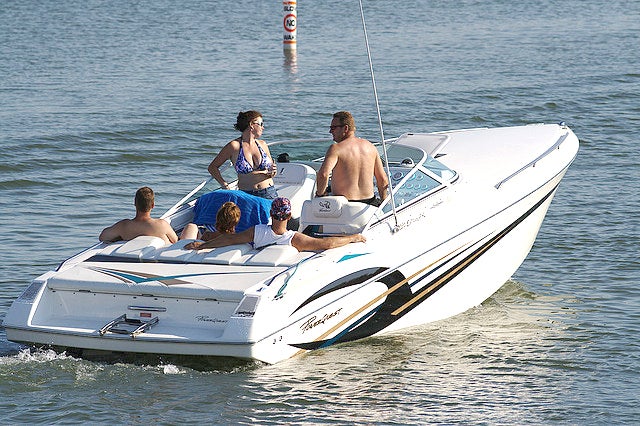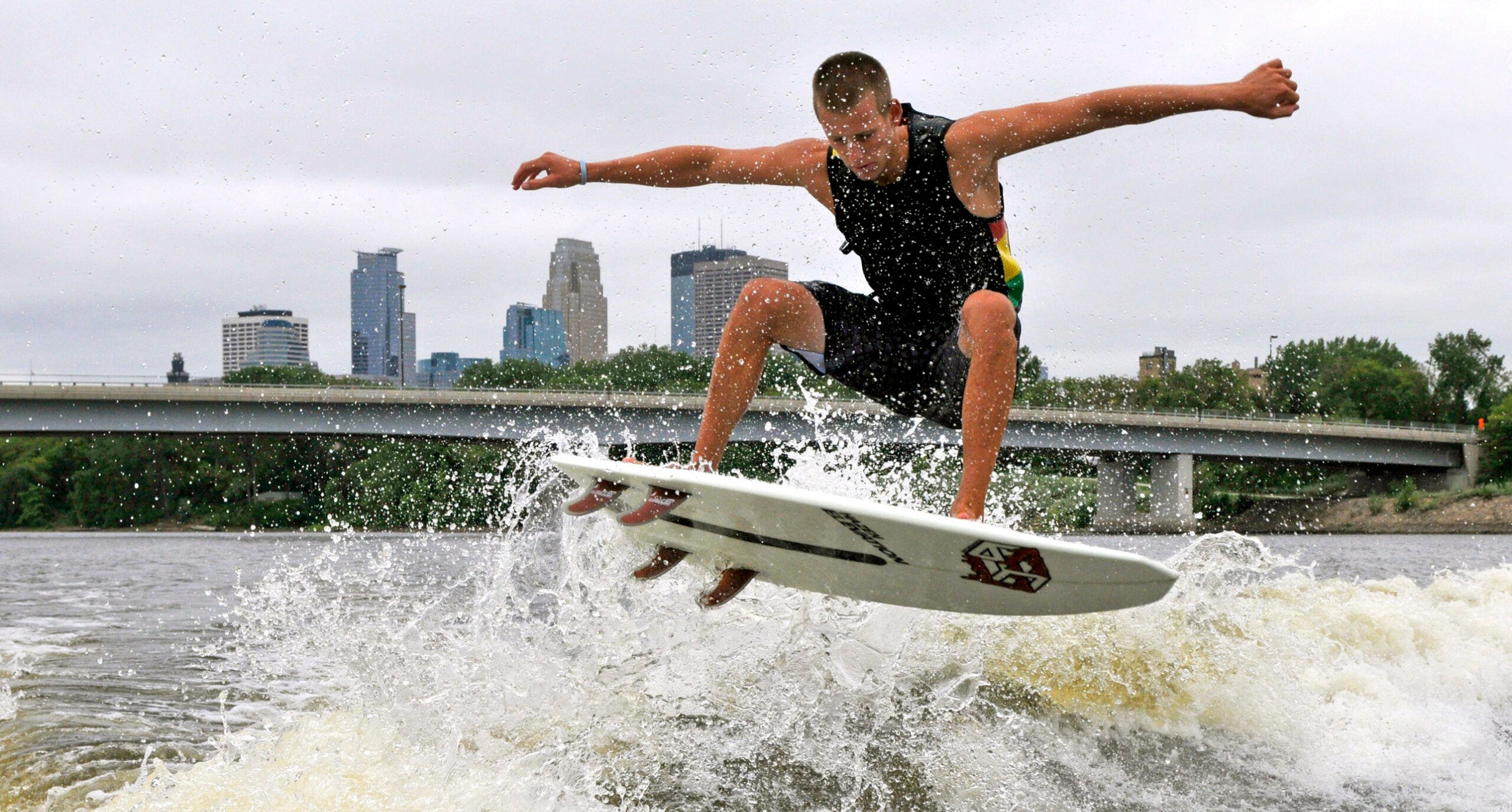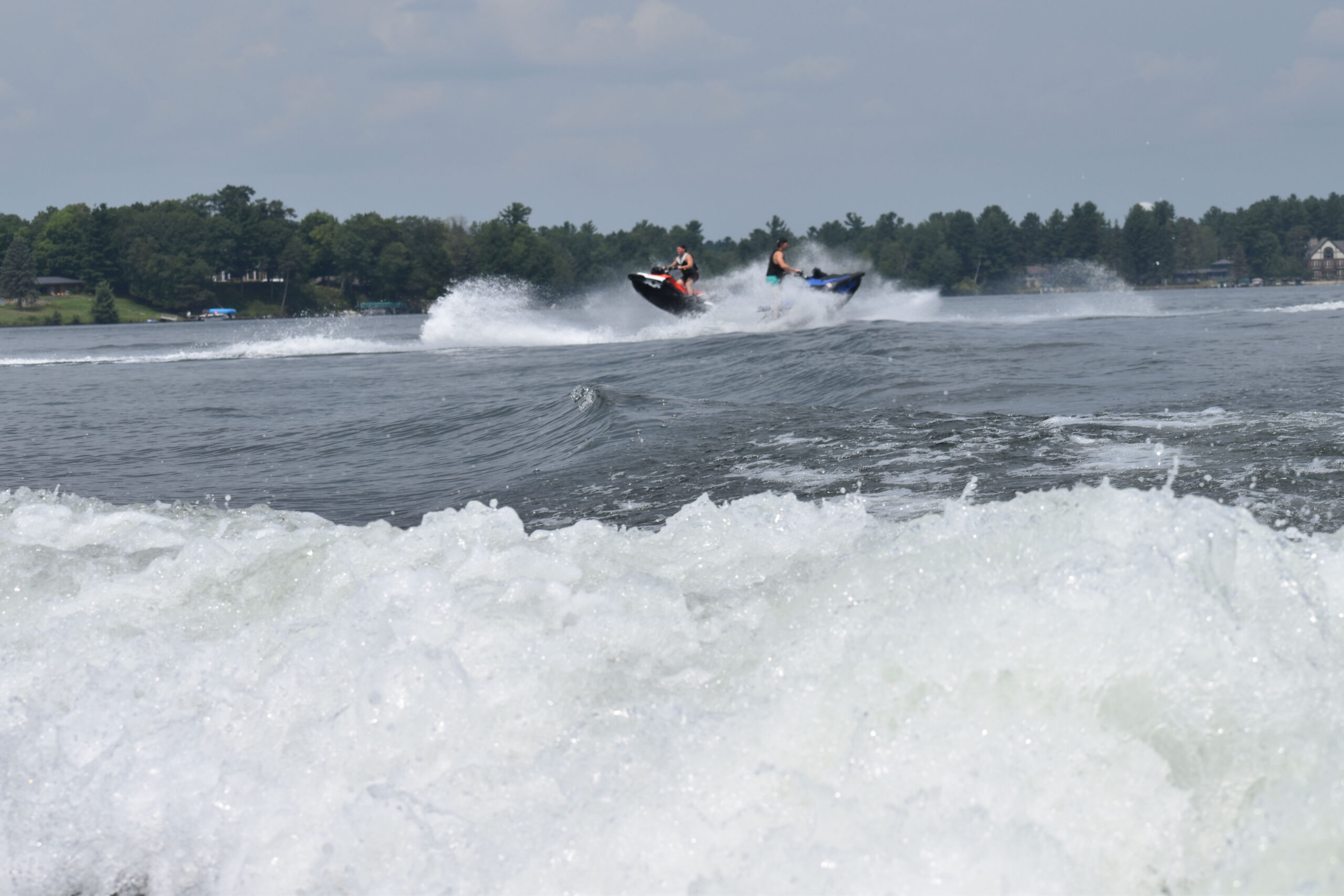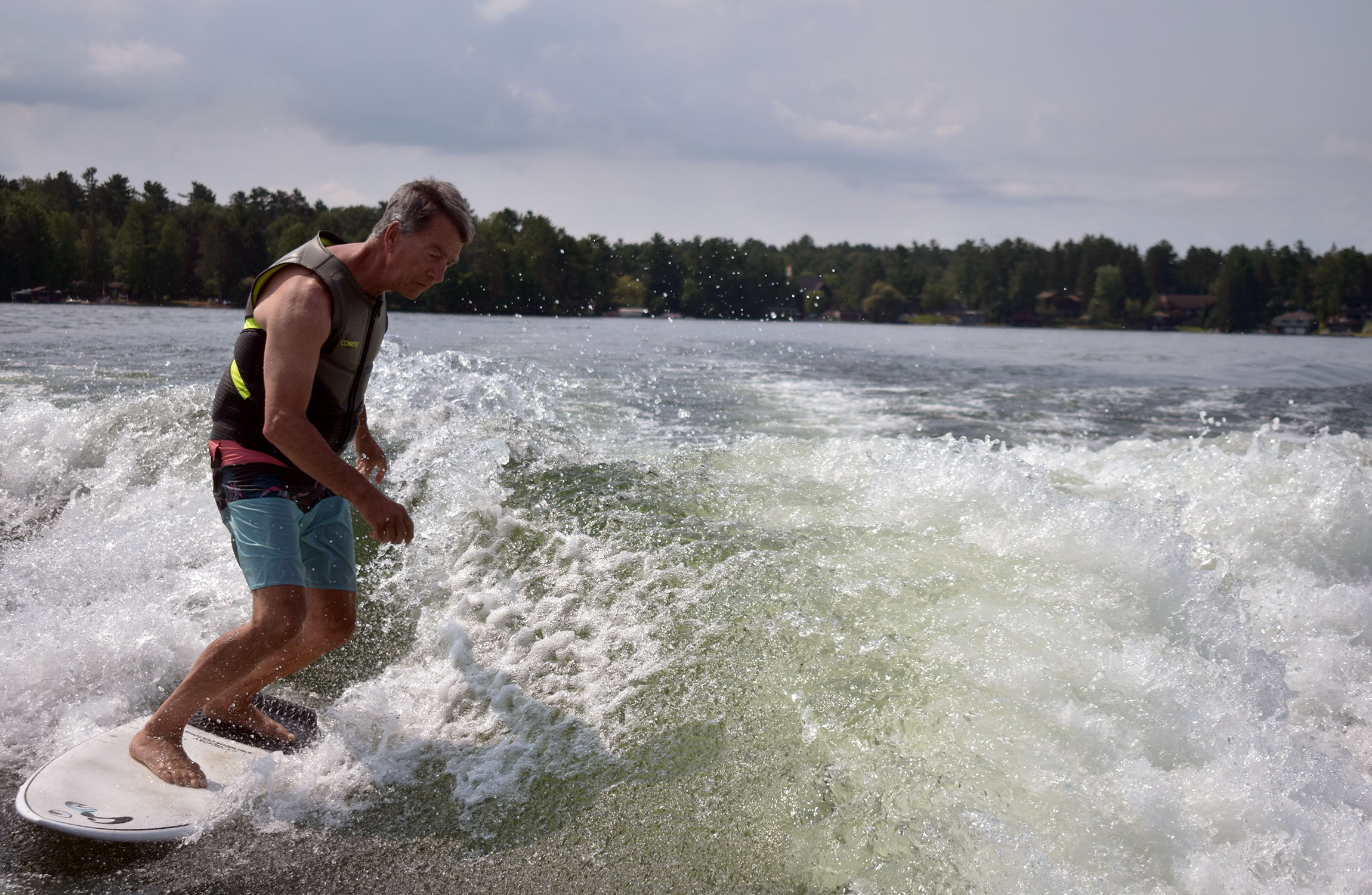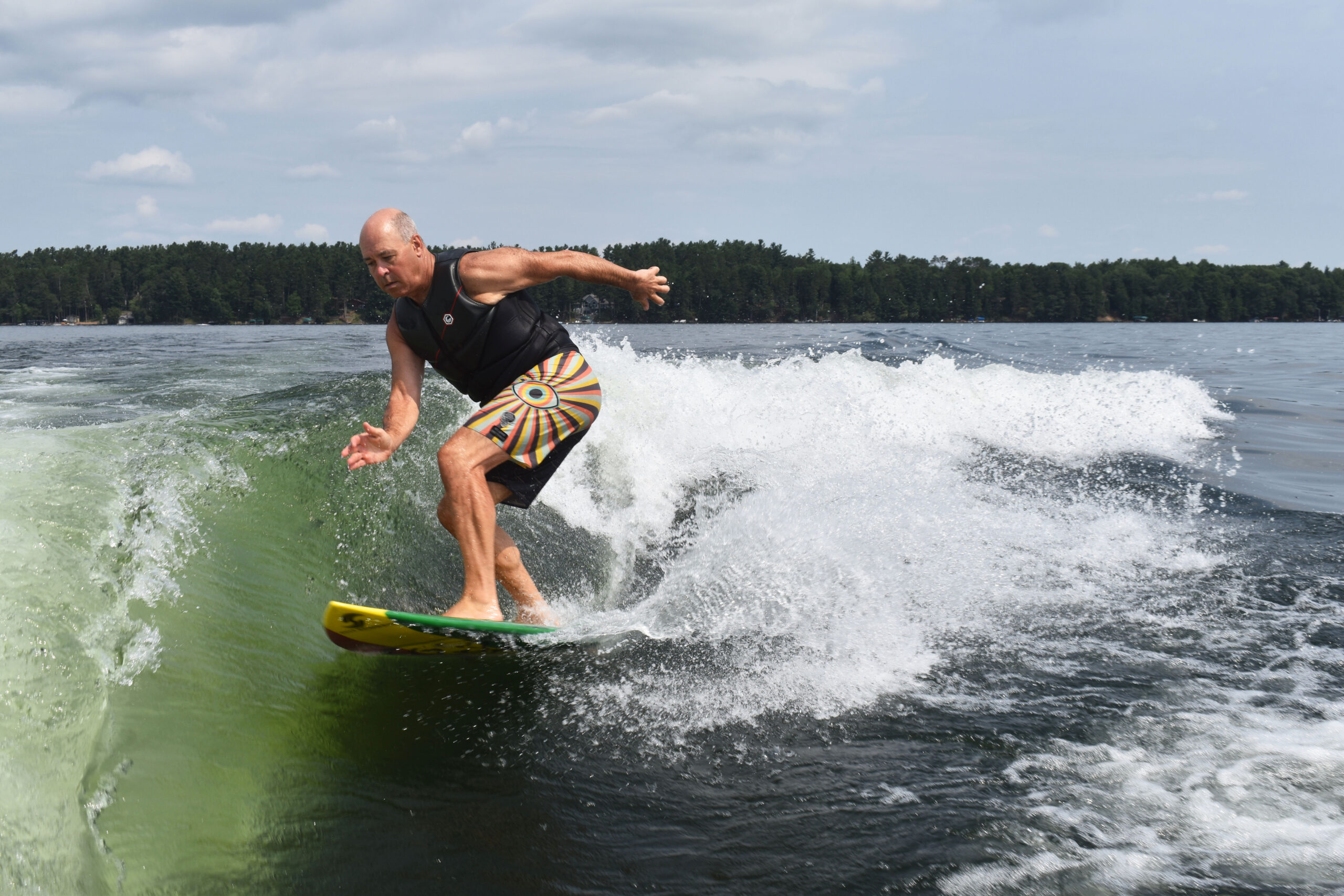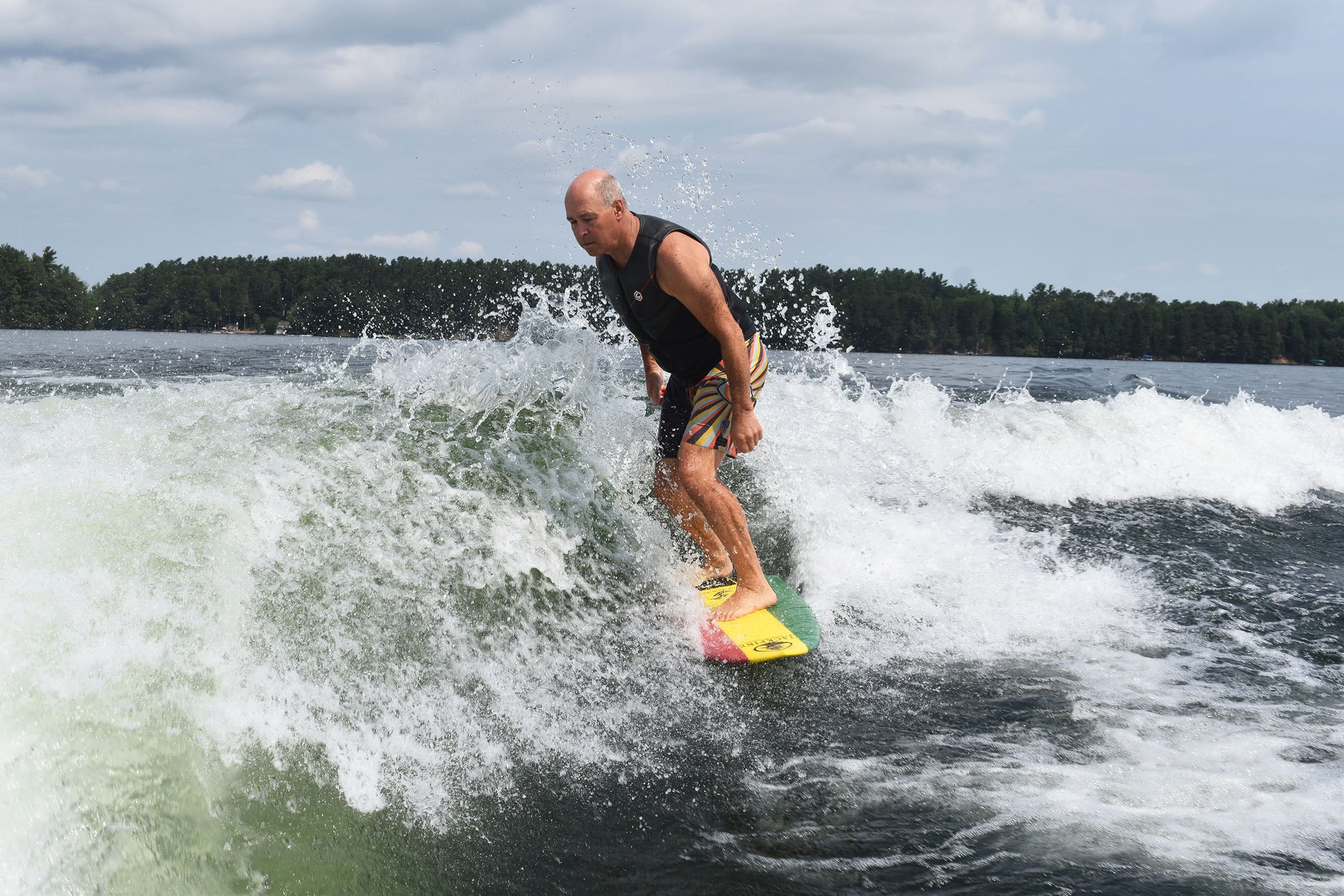A coalition of conservation groups are calling on the Wisconsin Department of Natural Resources to support local efforts to control the effects of wake boats on the state’s lakes.
Wake-enhanced boats are designed to magnify a boat’s wake through the use of ballast tanks or other design features, creating large waves that people can ride or surf.
Sports like wakesurfing have become more popular in recent years, sparking concerns over safety and effects on the environment.
Jeff Meessmann, an engineer and member of the Last Wilderness Alliance, told the Natural Resources Board on May 22 that a Republican bill would have allowed large wakes on lakes greater than 50 acres and no closer than 200 feet from the shoreline. The bill also would have barred local ordinances that sought stricter limits for wakesurfing or wakeboarding.
“Problem is these wakes create a safety hazard to everyone else using the lake,” Meessmann told the board. “They damage the environment, destroy personal property and they erode the shoreline.”
The bill, which was supported by the boating industry, failed to advance in the last legislative session. Another Republican bill sought to limit the use of wake-enhanced boats on lakes smaller than 1,500 acres and less than 700 feet from the shore, but the proposal didn’t receive a hearing.
A coalition of five groups want the agency to provide information to local governments that supports development of local ordinances that regulate wakesurfing or wake-enhanced boating. They include the Wisconsin Wildlife Federation, Wisconsin Lakes, Wisconsin’s Green Fire, Last Wilderness Alliance and Lakes at Stake Wisconsin.
Dan Butkus, president of Wisconsin Lakes, said at least 18 local governments are enacting or have already passed local ordinances to regulate wake sports.
“With the increase in the size, power and number of watercraft on Wisconsin water bodies, local boating ordinances are becoming more and more important as a tool to regulate and set communities’ norms for recreation on our waters,” Butkus said.
As they work with communities, Butkus said they’ve encountered skepticism on whether local ordinances may stand over fears that they may violate the state’s public trust doctrine. The doctrine ensures that the state’s waters are held in trust for the benefit of the public. He said some local governments have opted to wait for the DNR to act on the issue.
Butkus said they would like to see the agency designate one or two staff members to serve as a contact related to development of wake-related ordinances or provide model ordinances.
Marcy West, vice chair of the Natural Resources Board, said enforcement of local ordinances remains a concern.
“It’s obvious that the wardens can’t be everywhere,” West said.
While wardens can’t visit every lake, Butkus said towns or lake districts could conduct education through signage at boat landings or citizens could take photographs of any violators and forward them to DNR wardens.
“Enforcement doesn’t necessarily have to be there,” Butkus said. “It is education. It’s on the books. It becomes a social norm.”
DNR Deputy Secretary Steven Little said the agency plans to provide an informational briefing to the board about the issue to inform any potential actions on the matter.
“What we want to do is to provide solutions that are science-and fact-based, that are going to be effective in their outcomes,” Little said.
News with a little more humanity
WPR’s “Wisconsin Today” newsletter keeps you connected to the state you love without feeling overwhelmed. No paywall. No agenda. No corporate filter.
Wisconsin Public Radio, © Copyright 2025, Board of Regents of the University of Wisconsin System and Wisconsin Educational Communications Board.

